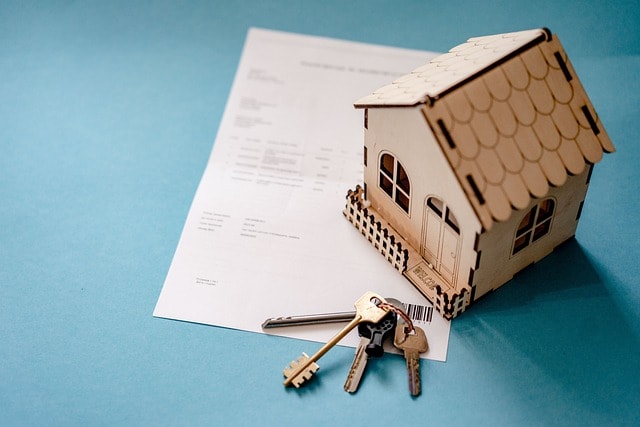What is a Personal Guarantee?
A personal guarantee occurs when a business owner, or a group of business owners, signs a legally binding promise to repay a business loan personally. This creates a legal obligation for the business owner to be financially responsible for the debt. If the company defaults on the loan, any business owner who signs a guarantee is personally liable for the remaining balance.
These guarantees bypass any limited liability protections. Even if the business goes bankrupt, you must still pay the remaining debt. It’s like a form of business collateral for lenders.
The guarantee gives the lender the right to sue the small business owner(s) for any remaining debt not discharged through the collection of collateral. You could lose your personal assets.
Many business lenders require business partners with a 20% or greater ownership stake to sign a personal guarantee before approving a loan. Even when it’s optional, signing one can often result in a lower interest rate on the loan. The business loan agreement will specify the terms of the personal guarantee and outline the borrower’s liability.
The following financial institutions require guarantees for small business loans:
- Banks and credit unions
- Online lenders
- Government lenders
Some lenders may also require collateral in addition to a personal guarantee, so it’s essential to understand all requirements before agreeing to a loan.
How do Personal Guarantees work in small business financing?
Personal guarantees are a tool for reducing risk for lenders by providing additional security beyond business assets. The process for getting a personal guarantee is simple. You’re usually required to sign the guarantee during the loan application process. The lender includes it with your loan documents.
Many business lenders view personal guarantees as a way to encourage borrowers to take their loan obligations seriously. Lenders may require spouses to sign personal guarantees, putting jointly held assets at risk.
Lenders will first go after any collateral if your business defaults on the loan. If the business cannot repay the business debt, the guarantor’s personal assets, such as real estate and savings, may be at risk. After foreclosing on collateral and auctioning off the assets, lenders can pursue any remaining loan balance from your assets. The creditor can target an individual’s personal assets to recover business debt. If a personal guarantee goes into collections, it can also impact the guarantor’s spouse if joint assets are involved.
In some cases, the lender might sue you for the remaining amounts. Judgments could include garnishing wages, seizing personal property, or freezing money in your accounts.
Failure to make loan payments can result in the lender seeking other assets, such as physical assets like vehicles or property, to satisfy the debt. You may need to file for bankruptcy if you don’t have the necessary funds to cover what’s owed. A personal guarantee can damage the owner’s personal credit score for up to seven years following a default.
There are two main types of personal guarantees in business financing: unlimited and limited.
Unlimited Personal Guarantees
Unlimited guarantees require that the principal is liable for the full outstanding balance of the loan. You’re liable for the entire loan amount. In the case of unlimited guarantees, if a business defaults, the lender can pursue the principal for the entire outstanding balance. Unlimited personal guarantees put the principal’s whole personal assets at risk if the business defaults.
Limited Personal Guarantees
Limited guarantees enable lenders to collect a specified amount or percentage of the outstanding balance from the principal, setting a cap on the guarantor’s liability. Under limited guarantees, if a business defaults, the lender can recover up to the specified amount from each guarantor. Limited personal guarantees are often used when multiple principals are involved in the loan.
Do all small business loans require a Personal Guarantee?
Personal guarantees are a common requirement for small businesses and startups seeking financing. A personal guarantee often remains in effect even if the business is sold or declares bankruptcy.
However, some secured loans may not require a personal guarantee if sufficient collateral, such as equipment, accounts receivable, or inventory, is provided. Business credit cards often do not need a personal guarantee, making them an alternative for some businesses.
On the other hand, an SBA loan almost always requires a personal guarantee, which is a key aspect of government-backed financing. It is essential to understand how these guarantees work and your liabilities when pursuing business financing.
Negotiating Personal Guarantees
You can negotiate personal guarantee terms to limit your individual risk. Options for negotiating a personal guarantee include limiting liability and adding a sunset clause. The inclusion of a sunset clause can reduce long-term risks associated with personal guarantees—limited personal guarantees cap potential losses for the guarantor.
Understanding the Legal Implications of Personal Guarantees
A personal guarantee is a serious legal commitment that can put your savings accounts, real estate, and other personal assets at risk if your business fails to make loan repayments. Lenders can take legal action, including suing, garnishing wages, or seizing property. Defaults may also be reported to credit bureaus, which can impact your personal credit and limit future financing options.
Before signing any agreement, seek legal advice and consult a financial advisor to review your financial situation. Understanding the legal implications helps ensure your decisions support long-term financial stability. Some loans, like SBA loans, require unlimited personal guarantees, exposing owners to full liability, including accrued interest. Others offer limited personal guarantees, capping your liability to a certain percentage and providing a safety net.
Carefully review loan terms, including any requirements for pledged collateral, which can add an extra layer of protection. By evaluating your options, you can select the best financing solution and protect both personal and business assets. Prioritizing informed decisions ensures you are comfortable with the level of individual risk while accessing the right financing options for your business.
What are the advantages of signing a Personal Guarantee?
Signing a personal guarantee can help you get approved and close a loan. Many loans require a guarantee, or you won’t be eligible. If your business has a limited credit history, a personal guarantee can increase your chances of qualifying for financing that might otherwise be out of reach.
On the other hand, a strong credit history can improve your loan terms and may reduce the need for a personal guarantee. Lenders may also consider your business performance when determining whether a personal guarantee is necessary and in setting the terms of the agreement.
The Small Business Administration requires a personal guarantee from anyone with an interest of 20% or more in a company. This means agreeing to a personal guarantee can help secure a small business loan, often considered the gold standard of small business financing. In some cases, a guarantee is required instead of collateral. This can help you secure a loan when you don’t have real property or tangible assets to pledge as collateral.
What are the disadvantages of signing a Personal Guarantee?
Personal guarantees significantly increase your risk when taking out a business loan. By signing a personal guarantee, you put your significant assets—such as your home, savings, or investments—at risk if the business defaults. Providing a personal guarantee means accepting personal responsibility for the business debt, making you legally and financially accountable to repay the loan using personal assets if necessary.
Defaulting on a loan can negatively impact your personal credit score and your future borrowing ability. In worst-case scenarios, you might have to file for bankruptcy if you can’t afford the repayment. Personal guarantees impact both your business’s and your own financial health, so it’s crucial to understand these implications before agreeing to one.
Personal Guarantee Pros & Cons
Pros:
- It could help get approved for a loan.
- Might help with unsecured financing.
- Required for SBA loans.
Cons:
- Increases your individual risk for business loans.
- Could lose personal assets.
- It could damage your credit score if you default.
Frequently Asked Questions
Here are the most common questions about personal guarantees in business financing.
Does a Personal Guarantee impact my personal credit score?
A personal guarantee won’t directly impact your credit score in and of itself. However, you usually sign the guarantee as part of a loan request.
Applying for a loan typically involves a soft or hard credit check. A soft credit pull won’t affect your credit, but a hard credit inquiry will likely lower your credit score.
The most significant risk associated with personal guarantees occurs only if you default on the loan. In that case, the defaulted loan will be on your credit history and negatively impact your credit score.
A lower credit score resulting from a default can also lead to higher interest rates on future loans.
Can I get a business loan without signing a Personal Guarantee?
While most business loans require personal guarantees, finding a lender that doesn’t need one might be possible. Businesses with substantial business assets may be able to secure loans without a personal guarantee, as these assets can serve as collateral to lower the lender’s risk. However, newer businesses or those without established assets are more likely to be required to provide a personal guarantee.
It will be easier to avoid personally guaranteeing a loan if you have excellent credit, consistent revenue, and high-value assets to pledge as collateral. Even then, some lenders will still require a guarantee. Other options to avoid personal guarantees include crowdfunding and personal loans.
Should I sign a Personal Guarantee for a business loan?
Personal guarantees are a standard industry practice. Small business owners sign documents to guarantee business loans every day personally.
However, given the risk involved in your business and personal finances, you should know as much as possible before signing a guarantee. Here are some ways to help you decide if it’s right for you.
Can your business afford repayment?
This one seems self-evident, but it’s an important consideration. Review your business plan and financial statements. If you are hesitant about a personal guarantee because you’re unsure if you can repay, you might want to reconsider taking out a loan altogether.
Do you understand your personal liability?
Before signing a personal guarantee, you want to understand the full extent of your liability. Determine if it’s limited or unlimited. Ensure you understand the terms of the guarantee. Don’t be afraid to ask questions.
Do you have the personal assets to cover the amount owed?
If your business fails, you must cover the amount owed. You may want to take stock of your personal assets to determine the cost to you.
What small business loans are available with a personal guarantee?
Since personal guarantees are required for most small business loans, you have more options when signing one. Here are some of the small business loan options to consider:
- Business term loans
- Business lines of credit
- SBA loans
- Merchant cash advances
- Accounts receivable factoring
- Working capital loans
- Equipment financing
- Bad credit business loans
- ERTC advances
Personal Guarantees – Final Thoughts
Lenders typically require any business owner with a 20% stake or greater to sign a personal guarantee. This legal promise to repay any loan amount waives limited liability protections, making each business owner personally responsible for any amount owed.
Personal guarantees are standard practice in business financing. The U.S. Small Business Administration (SBA) requires a personal guarantee for any SBA loans, which are considered the gold standard of small business financing. Many online lenders and banks also need it.
The best way to protect yourself from the increased risks of a personal guarantee is to ensure you don’t default on the loan. If you can pay the loan off according to the set payment schedule, the personal guarantee never comes into effect. Setting aside some personal income or assets just in case of a default would also be advisable.
Contact us if you have further questions about personal guarantees or would like to apply for a small business loan. Our loan executives can help you find the best financing program for your needs.












